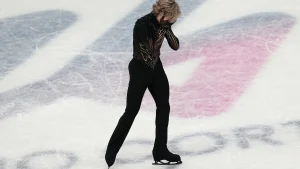Neige Sinno’s ”Forced Tiger” recounts the chillingly true story of her childhood sexual abuse at the hands of her stepfather, a trauma that stretched from the age of seven to fourteen. Sinno bravely confronts her past, not through a traditional narrative, but with the unflinching precision of an essayist, meticulously dissecting the complexities of abuse and its impact on her life. While categorized as a novel, the book’s unwavering commitment to truth and its analytical approach resemble a deeply personal and intellectual exploration of enduring trauma. This approach strips away the veil of fiction and forces the reader to confront the raw and agonizing reality of child sexual abuse.
Sinno’s narrative begins with a stark and unsettling portrait of her abuser. Instead of depicting a monstrous figure, she presents a disturbingly ordinary man: charming, socially adept, and professionally successful. This deliberate deconstruction of the ”monster” myth highlights the unsettling reality that abusers often exist within the normalcy of everyday life, concealed behind a façade of respectability. This dismantling of preconceived notions immediately disarms the reader’s defenses and underscores the insidious nature of abuse. Beyond his outward charm, Sinno reveals the pettiness and controlling nature of her stepfather, emphasizing the insidious blend of seemingly innocuous traits with the horrifying reality of his actions.
The author’s commitment to meticulous detail and stark honesty is one of the book’s most striking features. Sinno refuses to shy away from the graphic realities of her abuse, understanding that these uncomfortable details are crucial to understanding the profound and lasting impact of such trauma. This unflinching approach contrasts sharply with the often romanticized or sanitized depictions of abuse in literature and popular culture. By refusing to soften the edges of her experience, Sinno confronts the reader with the brutal truth, forcing an engagement with the often-ignored realities of sexual violence. This unflinching honesty gives the narrative an undeniable power and authenticity.
Sinno skillfully weaves together personal narrative with insightful analysis of broader cultural phenomena. She explores societal fascination with predatory figures, particularly men, and critiques the often-superficial treatment of abuse in literature. She challenges the notion that detailed accounts of abuse transform the reader into a voyeur, arguing that such accusations serve as a convenient way to avoid confronting the uncomfortable truths of these experiences. This insightful commentary adds depth to the personal narrative, positioning Sinno’s experience within a larger societal context and highlighting the systemic issues that often silence victims and enable perpetrators.
The author draws a parallel between her abuser’s desire for discretion during the trial and the societal tendency to shun open discussions of sexual abuse. Sinno argues that the shame and stigma associated with abuse are often directed towards the victim rather than the perpetrator. This observation highlights the societal pressure to silence victims and maintain a facade of normalcy, further compounding the trauma they experience. The fact that Sinno’s stepfather confessed to his crimes makes this dynamic even more disturbing, emphasizing the insidious ways in which societal pressures can perpetuate a culture of silence and impunity.
”Forced Tiger” is a profoundly disturbing yet essential work. It is not a comfortable read, offering no easy answers or comforting resolutions. Sinno’s unflinching honesty and insightful analysis force readers to confront the uncomfortable realities of child sexual abuse and the societal structures that often perpetuate it. The book’s power lies not in providing simple solutions, but in its unflinching exploration of the complexities of trauma, resilience, and the long journey towards healing. It serves as a stark reminder of the importance of listening to survivors, challenging societal norms that silence victims, and demanding accountability from perpetrators. Ultimately, ”Forced Tiger” is not just a personal story, but a powerful indictment of a culture that often fails to protect its most vulnerable members.














